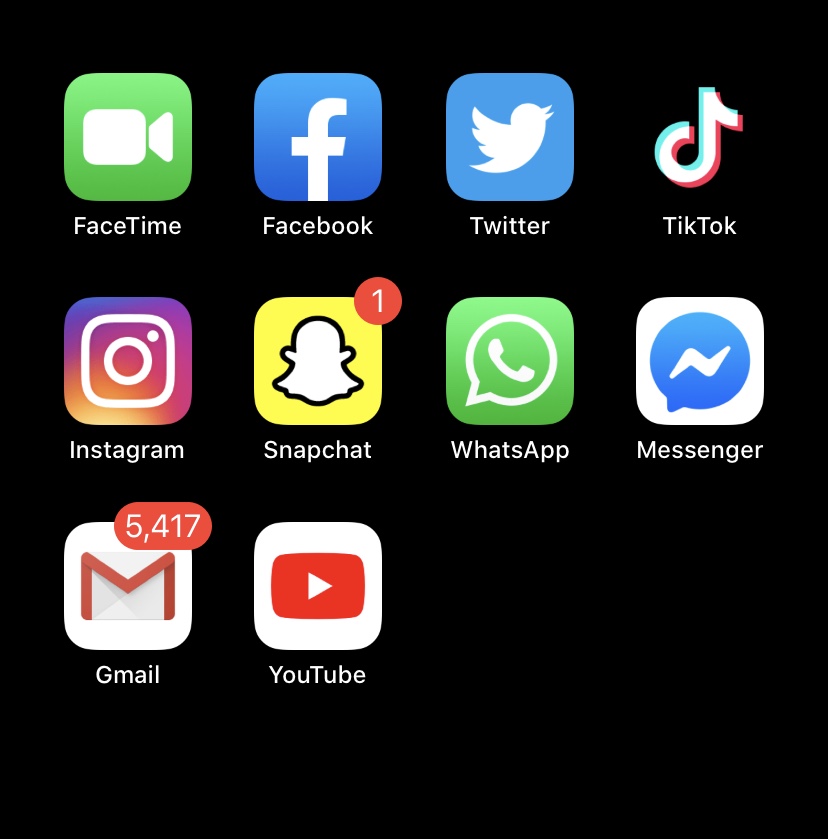The Virus Of Fake News During the COVID-19 Pandemic
The platforms above have been flooded with fake news concerning COVID-19.
Fake news has created confusion about the state of the COVID-19 pandemic. Fake news has also spread misinformation about precautions to be taken as well as possible cures. But even before the outbreak of the virus, fake news was already a very serious issue. Before the outbreak, a report from the American Heart Association found that physicians were encountering more and more patients who did not trust life-saving treatments because of something that they had read or watched online. According to the American Heart Association, about half of all online health-care-related articles contain inaccurate information, and these articles are more likely to be shared by those with a limited understanding of health care. In the face of COVID-19, fake news has become even more dangerous.
Throughout the pandemic, smartphones and social media have connected families who are separated, but they have also helped to spread harmful fake news. According to research published by Ofcom in an Al Jazeera article, in the United Kingdom alone, half of all adults have been exposed to incorrect or misleading information online about the Coronavirus. The Ofcom survey found that forty percent of adults in the U.K. are having a hard time differentiating the true information about the virus from the false. According to the survey, twenty five percent have seen advice online suggesting the virus can be cured by gargling salt water, and thirty-five percent have seen claims on social media that drinking excessive amounts of water can also help combat the virus. Both of these theories have been declared false by the World Health Organization. Zoya Garg ’21 said, “Every day, I see a new statistic or article about the Coronavirus pandemic on social media, and now it’s hard for me to decipher what’s real and what’s not.”
Thousands of posts are shared each day concerning the state of COVID-19. BBC news reports that the following message is circulating: “If you have any health conditions please do NOT go to hospital. You will not come back alive from this trust… Also have your daily black seed oil which prevents all disease.” These false accounts scare possible victims of the virus from going to the hospital, ultimately threatening their safety as well as the safety of those around them. These false tips also put people at risk because they might think they can treat COVID-19 themselves. Not only might they not seek medical attention, but, worse, they could harm themselves further with fake remedies.
President Trump suggested at a White House briefing, that an injection of disinfectant inside the human body could help to combat the virus. ‘The New York Times’ reported that after the briefing in Maryland, callers overwhelmed a health hotline with so many questions that the state’s Emergency Management Agency was forced to issue a statement that “under no circumstances” should disinfectant be taken internally to treat or prevent COVID-19. The response to Trump’s statement demonstrates the gravity of false cures for the virus. Even though Trump never explicitly told people to consume disinfectant, but that doctors should investigate the idea, people still tried to inject disinfectant into their bodies. The Poison Control Center in Kansas saw a 40% increase in cases related to cleaning products after Trump’s briefing.
There is another troubling theory. People believe that 5G cell phone towers are the cause of the virus. Despite being refuted by scientists, the theories over the cell towers and COVID-19 have been amplified on social media platforms. In Britain, where the claims over 5G have resonated, many cell towers and other pieces of communication infrastructure have been vandalized and damaged. The Netherlands has also reported instances of cell phone towers being damaged. Again, people are risking their lives, and the lives of those around them, over false information spread through social media.
In troubling times, social media helps to distribute vital knowledge to the masses. Unfortunately, this comes with a plethora of misinformation. Many people share COVID-19 facts and updates with the intent of keeping their virtual friends safe and informed. But I ask you, do not share anything that is not fact-checked and published by a reliable source. Or the spread of fake news may become just as dangerous as the virus itself.
Do not share anything that is not fact-checked and published by a reliable source. Or the spread of fake news may become just as dangerous as the virus itself.
Margaux Reyl is a Copy Chief for ‘The Science Survey.' As Copy Chief, Margaux is in charge of the second round of edits for many ‘Science Survey’...











